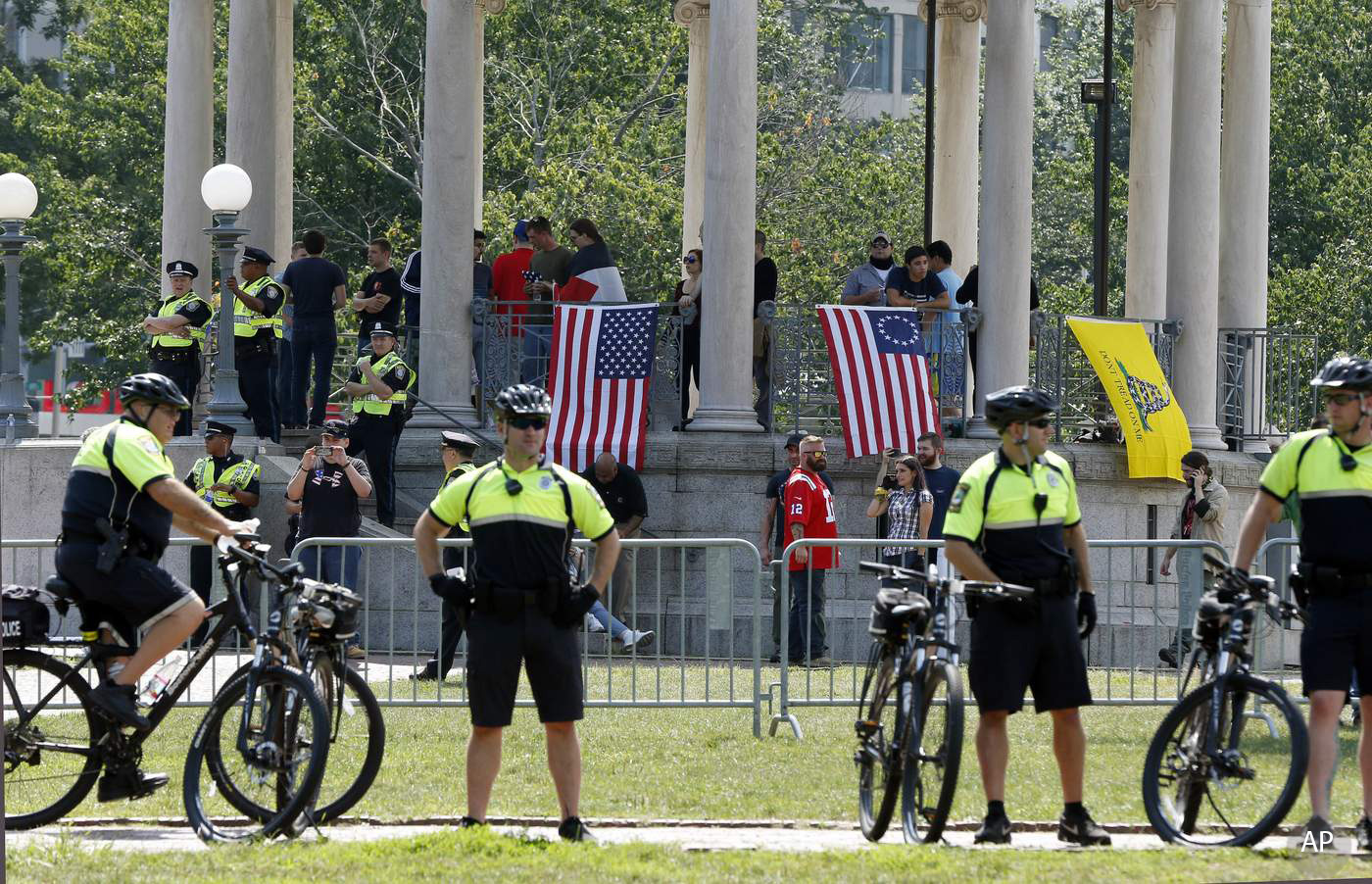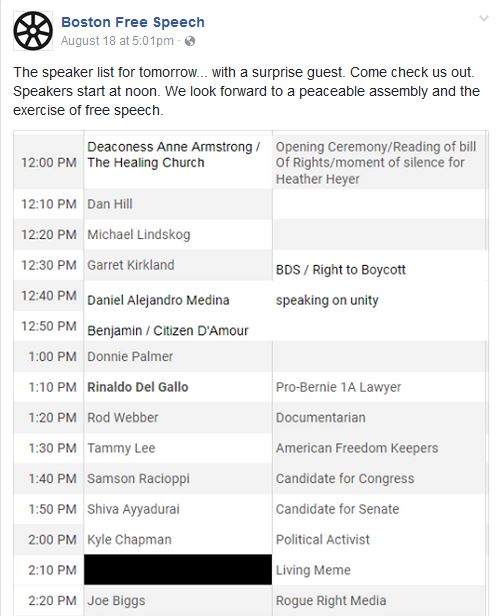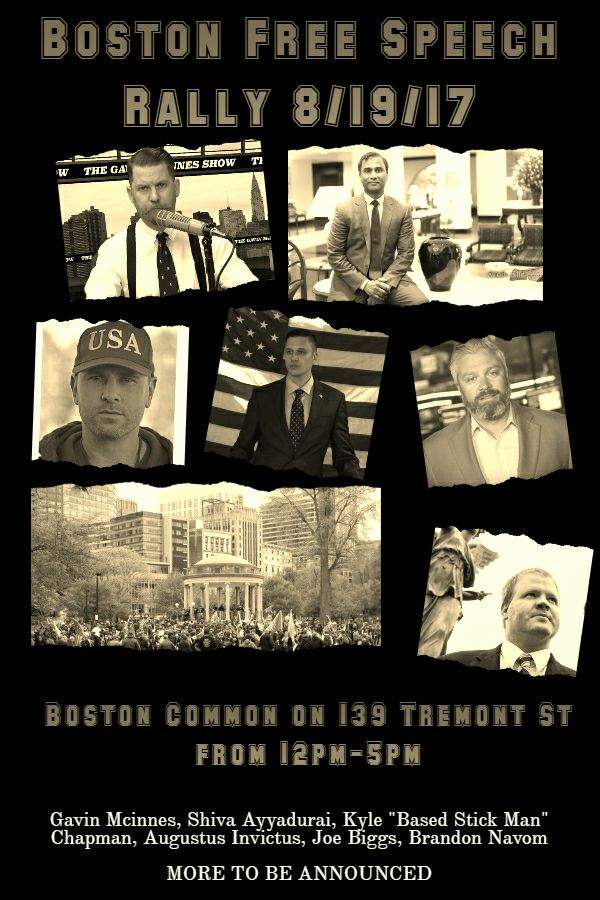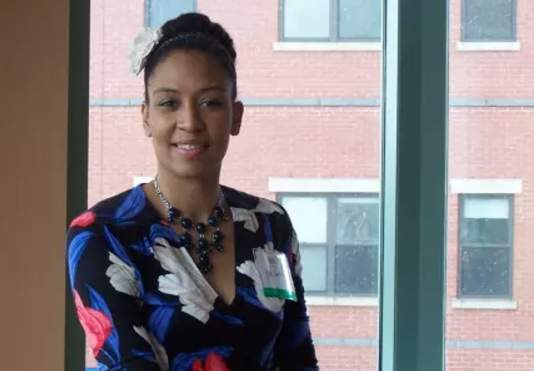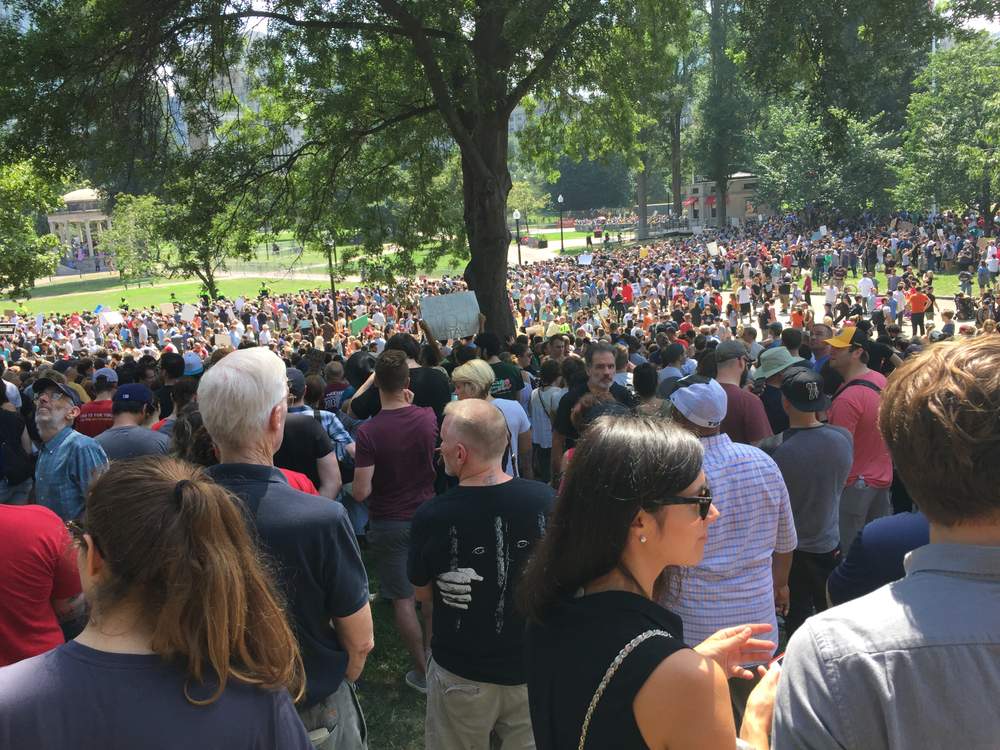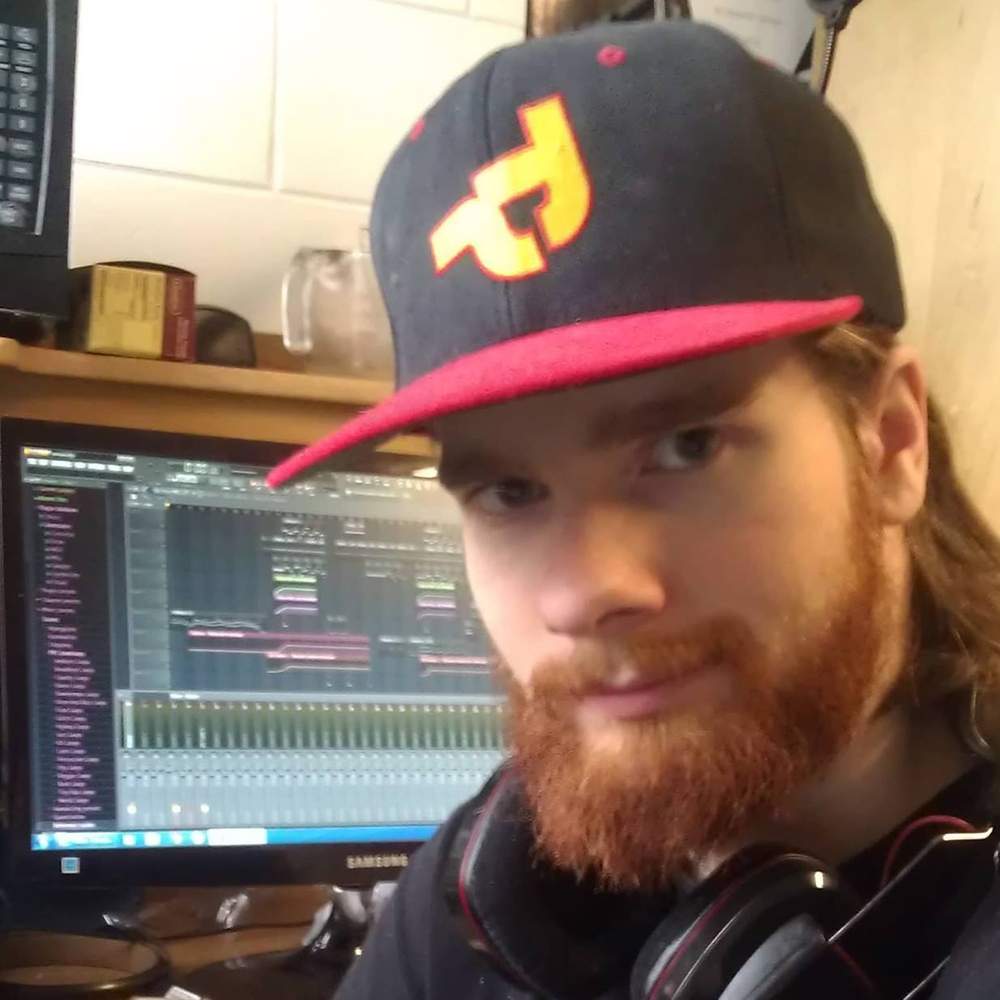BOSTON - John Medlar says he doesn’t trust government “at all.”
But he was profusely grateful to the Boston police officers who led him and a handful of allies into armored vans and escorted them through huge crowds of noisy counter-demonstrators who had come to speak out against white supremacists and neo-Nazis.
Cellphone video given to VOA by John Medlar shows participants in the Aug. 19 "Free Speech" rally in Boston as they ride in a police van to protect them from protesters.
It was an unseemly ending to what had been billed as a free speech rally -- not at all what the 23-year-old college student who organized it had in mind.
Medlar told VOA that his goal for the Aug. 19 rally in Boston was to test America’s commitment to free speech and to "encourage people to listen to each other rather than fight in the street."
He had done it before, after all. A similar event in Boston on May 13 had attracted some public criticism and about 100 counter-demonstrators, but no violence and nothing like the massive backlash and media attention provoked by his latest event.
What was different this time was the timing; the rally came just one week after white nationalists in Charlottesville, Virginia, had shocked the nation by marching through the night with lit torches shouting explicitly anti-Semitic chants, echoing 1930s-era Nazi images. The next day, a swastika-emblazoned rally ended with a white supremacist demonstrator driving his car at high speed into a crowd of counterdemonstrators, killing one and injuring 20.
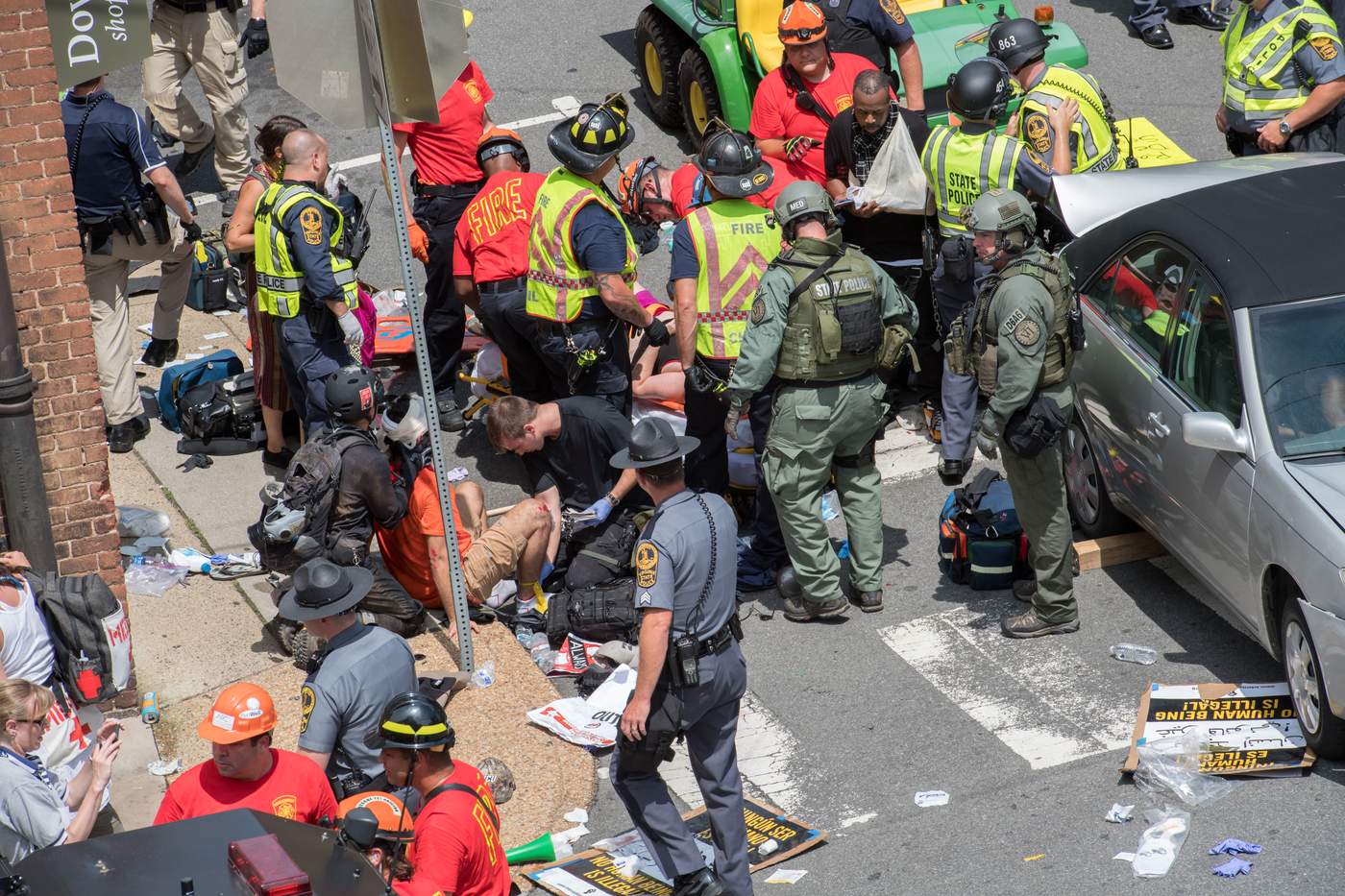
Emergency personnel attend to the injured after a car ran down counterprotesters in Charlottesville, Va., Aug. 12, 2017. (AFP)
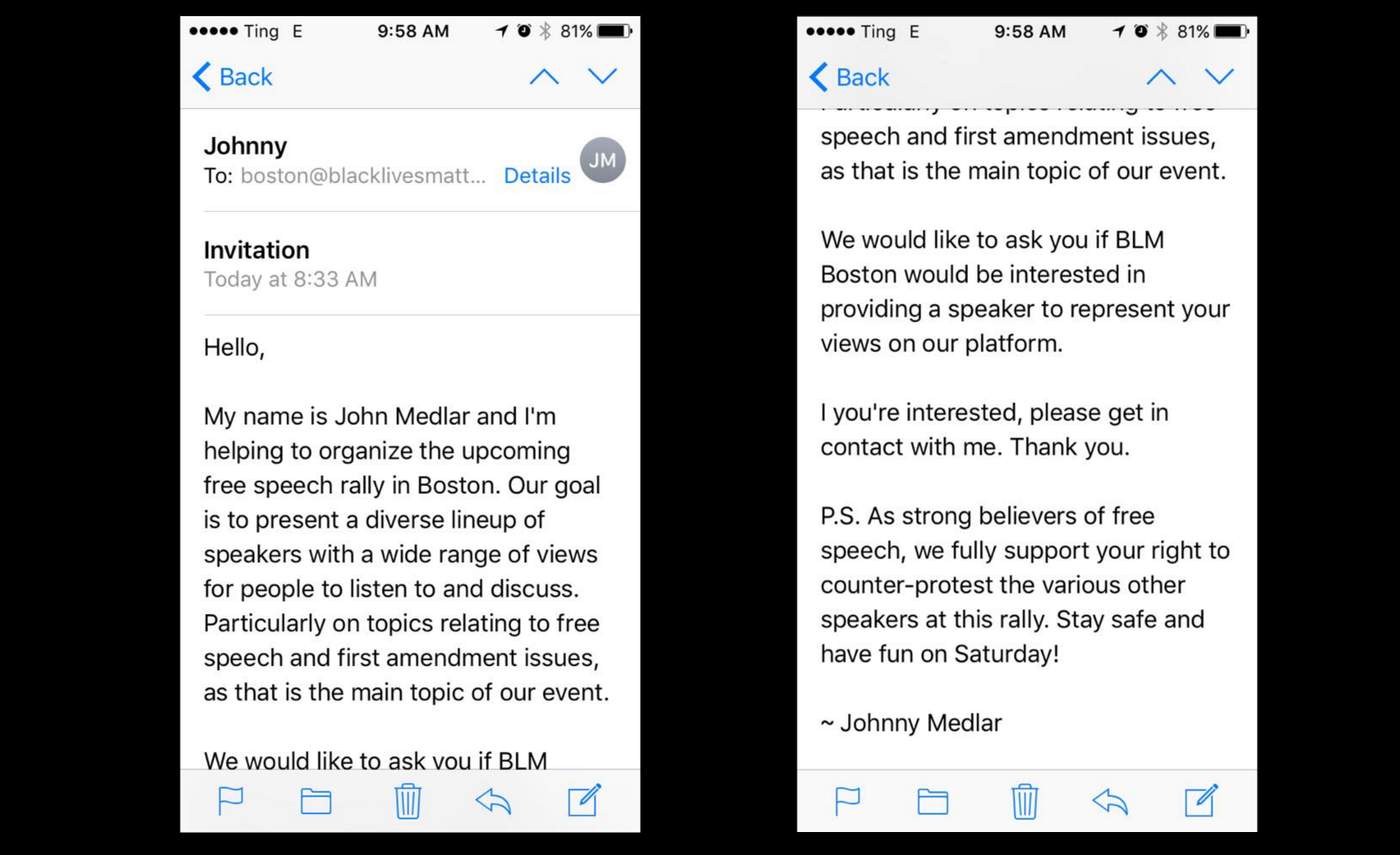
John Medlar provided these screenshots to VOA of text messages he says he sent to Black Lives Matter, inviting them to speak at the rally.
The group directed VOA to nine of those videos, some incomplete. None contains racist or white supremacist messages, but since independent media were kept away from the bandstand it is not possible to confirm there were no other speakers.
Two of the videos show members holding signs reading "Black Lives Matter" and protesting genetically modified food products -- normally a liberal cause. “I would think if there were KKK people there, they would rip those banners up,” said rally speaker Shiva Ayyadurai, referring to the racist Ku Klux Klan group.
Shiva, who is making a long-shot bid for a seat in the U.S. Senate, told VOA he attended the rally because he appreciates free speech, but he worries that the climate of speech tolerance is changing. “A sort of mobocracy is taking shape. A finite set of people are telling 40,000 people how to think. And what we witnessed [on Saturday] was almost a mob rule.”
Another speaker describes himself on the video as a progressive who has held anti-war protests and supports single payer health care and “expanded mass transit.”
But for counter-protest organizer Camacho, the fact that there were some inoffensive speakers on the program does not justify providing a platform for neo-Nazis.
What matters, she says, is with whom the group aligns itself and "what is meant behind the words [rather] than the words themselves. When you look at both sides, you have to decide on the values we bring and decide for yourself who you’re going to follow."
Camacho also doubts Medlar’s real purpose. "If this is really about free speech, there would have been a plan of constructive conversation from the beginning,” she says. “It is not solved by bunch of people yelling from the bandstand to a crowd of people."
Despite the massive backlash against his event, Medlar says his is not discouraged and plans to organize another, larger rally, though perhaps not for a few months. And next time, he says, he will have a better speaker system.
Misha Gutkin in VOA's Russian Service contributed to this report.

